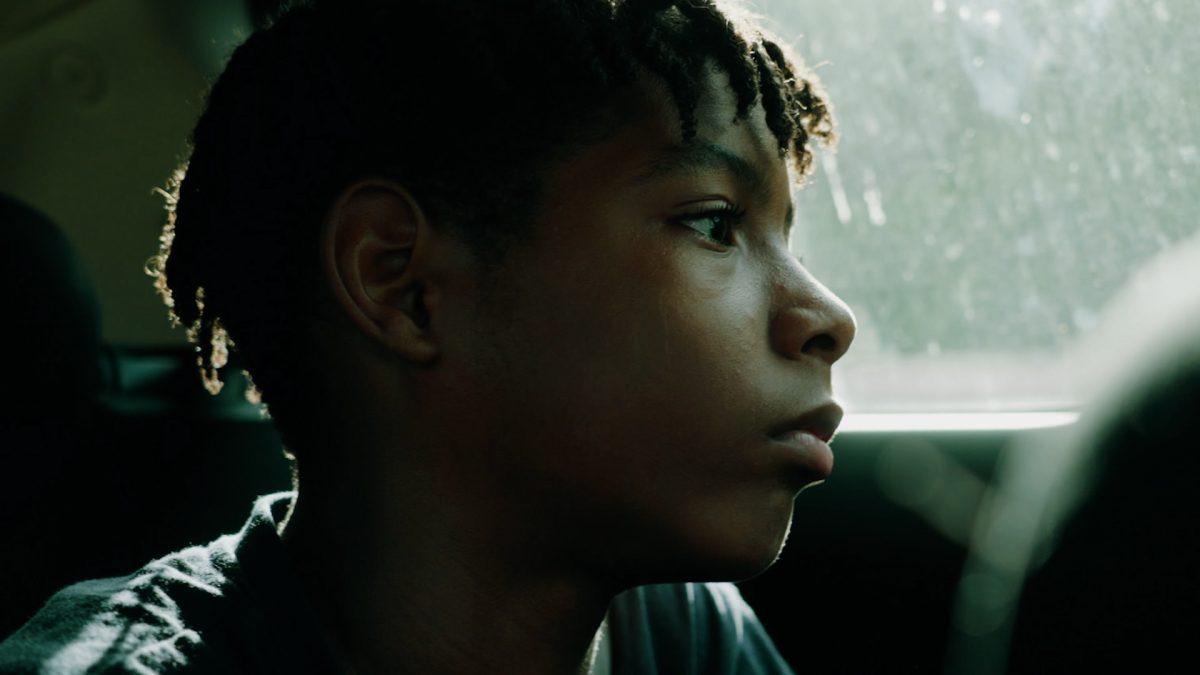
True/False Film “Kouté Vwa” unravels a world of healing
Yannick Cébret is engulfed around water. The water represents a world that Cébret lives in after the tragic death of his best friend, Lucas Diomar. This blue world, representing his trauma and grief, has diminished his hope and will to move on because of his trauma.
This is just one voice in the story of “Kouté Vwa (Listen to the Voices),” and the journey of 13-year-old Melrick Diomar, Lucas’ nephew. As he spends his summer in French Guiana with his grandmother, Nicole Diomar, he lives with a community in grief.
Melrick is much like any teenager: curious, playful and fond of music, particularly drums. The audience sees his day-to-day routine, seeing him play soccer and perform bike tricks with his friends. Back at his grandmother’s house, he helps her cook and watches TV. His life is simple, yet the film progressively dives deeper into who Melrick is.
The film shows a realist perspective of French Guiana. It explores the violence and economic disparity in the post-colonial territory. Melrick sees these effects first-hand during his visit, as his community members around him strive for reform.
This constant hope for reform in French Guiana’s society is a constant theme in the film.
The community showcases hope in music. It saves them and gives them a voice besides themselves, telling them to move forward. Throughout the film, music was a main component in funerals and remembrances for Lucas. It was a touching display of how people processed their feelings of grief.
During Melrick’s summer, his playing of drums was constant. He even played at his uncle’s remembrance. Melrick honored his uncle in a way that no one else in the family could as he connected with him and his love of music. This not only highlights the power of music in moments of remembrance, but shows that people can connect with one another without meeting them.
Lucas’s spirit is always present throughout the film. His spirit lifts the community and reminds them that physical absence doesn’t lead to disappearance, but that he will always be around in some way. The film shows this through the posters of Lucas throughout Nicole’s house, his remembrance mural and the stories that are told of him and the music that is played.
Grief is complex and encompassing. It is painful yet beautiful. Through “Kouté Vwa” the process of grief is illustrated through the various characters. Some emotions are more outspoken in their portrayals while others show their grief in small actions. Cébret and Nicole showcase these comparisons as they both strive to process Lucas’s death while moving forward and remembering.
Melrick, like many of the film viewers, are first-time witnesses to the depth of emotions that this community carries after Lucas’s death. Melrick’s youth represents an innocence and curiosity in understanding why certain people feel a particular way.
A poignant scene in the film contains Melrick and Nicole discussing Lucas’s death and the emotions that they both have. Melrick was young when Lucas passed and experienced it second-hand. He still feels anger and a sense of revenge for those responsible for his death. Whereas, Nicole shows forgiveness for them.
Nicole says that, if she succumbs to the values of hatred, then she is no better than her son’s murderers. She emphasized that she doesn’t forget her sadness or anger but chooses a path forward in her pursuit of healing — a courageous emotion few experience.
“Kouté Vwa” has shown viewers, like myself, that grief never fully disappears. Instead it fades into numbness and a way to co-exist with it.
The film ends with uncertainty. There is no final scene, and it left me with a sense of wonder. How are Cébret, Nicole and Melrick now? What has happened to the community? Have they ever found peace?
Director Maxime Jean-Baptiste has won in the Locarno’s Film Festival’s First Feature Competition and Special Jury Prize in Filmmakers of the Present.
“Kouté Vwa” will be shown at The Globe on Friday, Feb. 28 at 4 p.m. and Big Ragtag on Saturday, March 1 at 9:45 a.m.
You can keep up with The Maneater’s 2025 True/False Film Fest coverage here.
Edited by Alyssa Royston | [email protected]
Copy edited by Hannah Taylor | [email protected]
Edited by Annie Goodykoontz | [email protected]